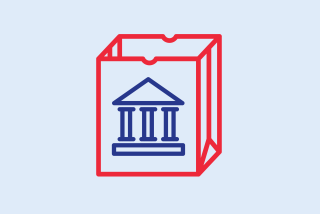Everyone Can’t Be Powerless
The city of Los Angeles has embarked on one of the great journeys of civic life: the reform of its constitution. The City Council created a 21-member, independent commission on charter reform that has been meeting since November. It will formulate recommendations to the council for eventual placement on the ballot. On April 8, the voters will decide whether to endorse Mayor Riordan’s proposal to create an additional, elected commission on charter reform, whose recommendations would go directly to the voters.
The mayor and the council obviously have different views of how best to reform the charter. There may well be two commissions operating at the same time. While these differences certainly complicate charter reform, they are not insurmountable. We just need to remember the deeper motivation for reform: the spreading cycle of powerlessness in our city.
To a remarkable degree, people at all levels of Los Angeles life--San Fernando Valley residents, inner-city residents, businesspeople, labor activists, government officials--perceive themselves as powerless. And almost always, this powerlessness is seen in comparison to some other group’s power. It is not just absolute powerlessness but a feeling of relative powerlessness.
But how can this be? If everybody feels powerless, who has power? In the world of perception, nobody does.
We see this every day in Los Angeles. At City Hall, the mayor and the City Council each see themselves as embattled and losing power to the other. This struggle helped define the shape of attempts at charter reform. Business leaders feel powerless in dealing with the city’s “red tape,” while city employees feel vulnerable and labor sees itself as weak compared to business.
Outside City Hall, people in different areas of the city eye those in other areas with wariness, often feeling powerless in comparison. A good example was last year’s battle in the City Council over sewer rates. The amount of money at stake was small; the contest seemed to be over perceptions of power. After the San Fernando Valley’s position narrowly prevailed, non-Valley council members walked out angrily. Those outside the Valley felt powerless, having lost the issue; those in the Valley felt powerless because the walkout seemed to question the legitimacy of their victory.
In this setting of powerlessness, government becomes not the credible harmonizer of diverse interests, but a reflection of what each segment of the community sees as its loss of power.
In its harshest manifestation, such a cycle can have devastating consequences. There can be violence in the streets, as in 1992, or there can be serious talk of secession, as in 1996. When people see their defeat (or even a contentious victory) on a particular issue not as a temporary setback in a generally fair game but as evidence of a stacked deck, trouble is inevitable.
But in daily life, this view results in nonparticipation, in cynicism, in a loss of community. It is found in the lost civic potential of a great metropolis.
Can charter reform help reverse this cycle and restore government’s role as the promoter of a civic game with credibility? It can, but only if charter reform as a process reaches the widespread feeling of powerlessness in all corners of the city. People have to be able to openly discuss their alienation and powerlessness in a civic forum. That is why our commission will hold open public hearings throughout the city. People will soon discover that those they consider powerful don’t feel powerful at all.
We can then address the structural questions of the charter with two big goals in mind:
* How can we make city government as a whole more effective, more visible and more accountable? What shifts, if any, in the roles of the mayor, council, commissions and departments would make that possible?
* How can we utilize the charter to help people feel more connected and powerful? How can we revitalize the civic culture through electoral reforms, greater access to City Hall or decentralization?
We need to move beyond the question of who wins charter reform. That is simply a continuation of the problem that got us here in the first place. Whoever wins will feel better for a while, until they lose the next battle. Whoever loses will feel even more powerless than before.
We need to use charter reform to design a system in which everybody may not win all the time, or even most of the time, but in which losing is a spur to dust oneself off and try again. Let’s find a way to replace the cycle of powerlessness with a cycle of power.
More to Read
Sign up for Essential California
The most important California stories and recommendations in your inbox every morning.
You may occasionally receive promotional content from the Los Angeles Times.










